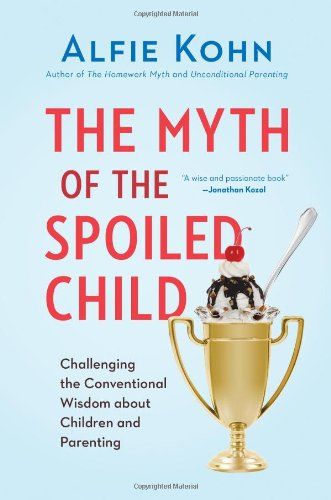

Trying To Be Open Minded
Source/Author: Mike Murphy, Headmaster
November 11, 2016
Are you capable of changing your mind about a person, a belief, an opinion? When was the last time you remember changing your mind about anything important? Is it possible to be an authentic learner, researcher, or person if you are not open to a new or different thought?
Recently, a colleague gave me a book from a popular educator and author who has been on a crusade to end competition for over 20 years. Admittedly, he is and has been way over the top for me even though I believe his heart is in the right place.
Nonetheless, Alfie Kohn’s new book "The Myth of the Spoiled Child" does a nice job of presenting information to show how each generation has felt the next generation is spoiled. He makes a great case that this generation of children and parents are not that much different from previous ones. At the same time, in true Alfie Kohn style, he makes a case against awards, competition and conditions that require some children to lose.
One of Kohn’s interesting points deals with how praise is used as a way to manipulate behavior rather than as a way to acknowledge a person. Do we praise children in an effort to have them do what we want? Can you think of a time when you praised a child or adult for something the person accomplished that was not important or meaningful to you?
Admittedly, I did not give my children much praise for achievement on the video games they played even though they were at times quite pleased with the progress they had made. Kohn’s question on the purpose of praise is thought-worthy.
We often hear stories about writers, performers, inventors, and educators who were not praised for their choice in college major or career because parents thought more practical pursuits would be more rewarding and stable. I wonder if Nobel Prize recipient Bob Dylan’s parents praised him for his literary and musical pursuits?
Kohn does a nice job of distinguishing between indulging children with praise instead of material objects. He sees a clear difference between the parent who gives a child every gadget, toy, vehicle, trip and experience available, and the parent who praises a child for trying hard and making progress even if the achievement is nothing special. What harm can “overindulgence” do?
Even though Kohn does a good job of providing information that shows that competition, grades and awards may not be the most effective way to support and inspire people, I cannot bring myself to buy his beliefs hook, line and sinker.
However, I will agree with the premise of his book. This generation of children are no more spoiled and coddled than any before. The percentage of parents who helicopter and excuse unacceptable behavior has not increased. If you have someone tell you this generation of children and parents are not doing their job, give the person a copy of Kohn’s book.
Cheers,
Mike
























